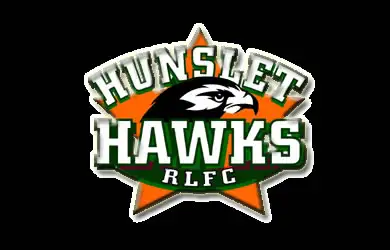Is the Hunslet-Leeds partnership a sign of things to come?

Hunslet have made the bold move to partner up with Super League champions Leeds, but is this a sign that Championship sides are to become feeder clubs for the big boys?
The gulf between the top two divisions has widened considerably since the last year of automatic promotion, back in 2007, and the expansion of Super League to 14 has added to that gulf.
While Featherstone were able to beat Castleford in a one-off game in the Challenge Cup this season, as well as give Wigan a good game in the next round, the gap on and off the field between most of the clubs is increasing.
The Championship salary cap, reduced a couple of years ago to £300,000, is barely a sixth of that available in Super League, while most crowds in the Championships continue to dwindle.
With Bradford seemingly untouchable in Super League, as a “big club”, what sort of message does that send out to clubs, like Featherstone, who have Super League aspirations?
As it is, Hunslet are probably realistic enough to realise they will probably never be big enough to sustain Super League, although they came mightily close to joining the party around the turn of the century.
They have instead looked to secure their future by hooking up with the Rhinos, which could attract much needed revenue from both fans and commercially.
Here is what the initial partnership entails, from the Hunslet website:
• We will retain our independence, HIST will continue to run the club, and it’s important to remember this is a partnership and not a merger.
• The clubs coaching staff will have input into the selection process of which players will come to Hunslet as dual registration players. Our main aim will be for a small number of players on season long dual registrations to retain continuity.
• Leeds will have no input to our team selection.
• We will look to try and increase home crowds through developing ticketing initiatives to attract Leeds season ticket holders & new supporters.
• We will look to increase sponsorship and commercial opportunities though contacts provided by Leeds.
• We will work with Leeds to share best practice, knowledge and expertise on marketing, media and commercial operations.
• No formal contract has been signed between the clubs and no specific time period has been set for the partnership. We have however committed to regular reviews going forward to assess the ongoing viability of the partnership from both sides.
Following the advent of dual registration in recent years, this is another indication that a feeder club system could be the result of licensing.
A few hundred fans from a “parent” club through the gate each weekend would provide a significant boost for most Championship clubs, while being able to secure some quality young Super League players should help improve the standard on the pitch.
Down Under, for instance, how many non-NRL clubs can the average UK rugby league fan name? Not many, if any at all.
Maybe that is because the closed-shop model is the only sustainable full-time model for the competition.
But maybe it’s not. Featherstone, Halifax, Leigh and Sheffield will all argue that they deserve their place in the top flight, while what about aspiring other clubs from Cumbria, Wales and London who may want to work their way up in years to come.
The Bradford situation gives off the impression that only a select few will be chosen to make it to the top flight, and as such, it is hard to imagine how the licensing system will continue. Will the same few teams keep exchanging their places every three years, or is expanding the league the only way for new clubs to join the competition (ala the NRL)?
Expect more Championship clubs to forge links with their Super League counterparts – it’s a sensible thing to do.
In the meantime, the clubs in no mans land – the ones who have Super League ambitions of their own, and aren’t willing to accept merely being a feeder club – have a bumpy ride to follow.